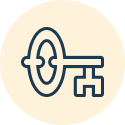Child Neurology Board Review Questions
Master
6 Months2050+ Questions
$249 $199
Prepare
3 Months2050+ Questions
$249 $199
Cram
1 Month2050+ Questions
$249
Free Trial
Free access to select questions
Included with all plans
- Customize practice tests by subject
- Track your progress with advanced analytics and reports
- Timed option to simulate real test conditions
- Compare your progress against the national average
“Just wanted to add my thanks to the pile. I passed the neurology boards (with special qualification in child neurology), and BoardVitals was a large part of my study plan. I thought the questions were appropriately difficult, and I very much appreciated the feedback from your staff when I questioned a small minority of the items (the ones that were unclear or wrong were promptly corrected). Well done! Thank you, and if I decide to take the pediatric boards next year, I will know where to come!”
Susan DubersteinMD
 Key Child Neurology Board Review Features
Key Child Neurology Board Review Features
Child Neurology Board Review Topics Covered:
- Pharmacology
- Oncology
- Sleep
- Basic Neuroscience
- Behavioral, Cognitive, Psych
- Headache
- Pain
- Epilepsy, Seizures
- Genetic
- Congenital
- Cerebrovascular
- Neuromuscular
- Cranial Nerves
- Movement Disorders
- Demyelinating Disorders
- Neuroinfectious Disease
- Critical Care
- Trauma
- Neuro - Ophthalmology
- Neuro - Otology
- Neurotoxicology, Nutrition, Metabolic
- Pregnancy
- Child Neurology
- Neurologic Complications of Systemic Disease
- Ethics
- Imaging/Diagnostic Studies
- Clinical Neurology
- Spinal Cord Diseases
Information about the ABPN Child Neurology Certification Exam
The ABPN issues a certificate for Psychiatry, Neurology, and Neurology with a Special Qualification in Child Neurology. The BoardVitals question bank is specifically targeted to the Special Qualification exam. Click here for access to our general Neurology question bank.
BoardVitals has a statistically significant higher pass rate than the national average on the Neurology and Psychiatry exams. The content is updated continually, ensuring that we don’t include any older question formats or content.
The questions on the Certification Exam in Neurology with Special Qualification in Child Neurology exam conforms to a two-dimensional content specification. One dimension focuses on disorders and topics, while the other is devoted to competencies and mechanisms that cut across the various disorders of the first dimension.
What is covered on the ABPN Certification Exam in Neurology with Special Qualification in Child Neurology?
According to the ABPN Child Neurology CERT Content Blueprint, the exam covers the following topics:
Dimension 1: Neurologic Disorders and Topics
- Headache and pain disorders 7-9%
- Epilepsy and episodic disorders 8-12%
- Sleep disorders 3-5%
- Genetic and developmental disorders 8-12%
- Vascular neurology 2-4%
- Neuromuscular diseases 8-12%
- Movement disorders 4-6%
- Demyelinating diseases 5-7%
- Neuroinfectious diseases 7-9%
- Brain and spinal trauma 4-6%
- Neuro-ophthalmologic and neuro-otologic disorders 2-4%
- Metabolic diseases, nutritional deficiency states, and disorders due to toxins, drugs, and physical agents 5-7%
- Neuro-oncologic disorders 1-3%
- Behavioral neurology and neurocognitive disorders 7-9%
- Psychiatric disorders 4-6%
- Autonomic nervous system disorders 1-2%
- Normal structure, process, and development through the life cycle 4-6%
- Neuroimmunologic and paraneoplastic CNS disorders 1-3%
Dimension 2: Physician Competencies and Mechanisms
- Neuroscience and mechanism of disease 22-28%
- Clinical aspects of neurologic disease 17-23%
- Diagnostic procedures 17-23%
- Treatment 22-28%
- Interpersonal and communication skills 2-3%
- Professionalism 2-3%
- Practice-based learning and improvement 2-3%
- Systems-based practice 2-3%
Note that the examination DOES include adult neurology topics and concepts.
What is the format of the ABPN Certification Exam in Neurology with Special Qualification in Child Neurology?
The ABPN Certification Exam in Neurology with Special Qualification in Child Neurology is comprised of 400 multiple-choice questions (MCQ) in stand-alone and vignette format. 350 of these questions are scored, and 50 are considered "pretest" and do not factor into the final exam score.
Stand-alone
Stand-alone questions are single best answer MCQ’s that are not associated with any other questions. These questions can be flagged for review or skipped. However, candidates cannot review questions in a section that has been completed.
Vignette
Vignette questions are typically two to five MCQ's linked to a common case that may be presented in either a short video clip (30 seconds to 3 minutes), or in text. Vignette questions must be answered in order to advance to the next question. Therefore, candidates can not skip vignette questions or review vignette questions after they have been completely answered.
It is recommended that candidates familiarize themselves with the examination functions by reviewing Samples Screens provided by the ABPN.
The pass rate for the Certification Exam in Neurology with Special Qualification in Child Neurology exam was 89% for first-time takers in 2021.
Learn more about the Child Neurology Board Exam on the blog
Trying to find additional information to study for the Child Neurology Board Exam? Check out the articles in the Child Neurology section on our blog. You’ll find helpful board prep resources, in addition to practice questions to help you prepare for your upcoming Child Neurology Board Exam.
-
5 Free Child Neurology Board Exam Practice Questions
The Child Neurology Board Exam is coming up, so we put together this quiz with 5 free practice questions to help you prepare.
Read More -
Child Neurology Board Exam Prep Resources
Great resources to prepare you for the American Board of Psychiatry and Neurology (ABPN) Initial Certification Exam in Child Neurology.
Read More
Accreditations
BoardVitals is accredited by the Accreditation Council for Continuing Medical Education (ACCME) to provide continuing medical education for physicians. BoardVitals designates this Internet Enduring Material for a maximum of 100 AMA PRA Category 1™ Credit(s). Physicians should claim only the credit commensurate with the extent of their participation in the activity. Further Child Neurology CME info found here.
